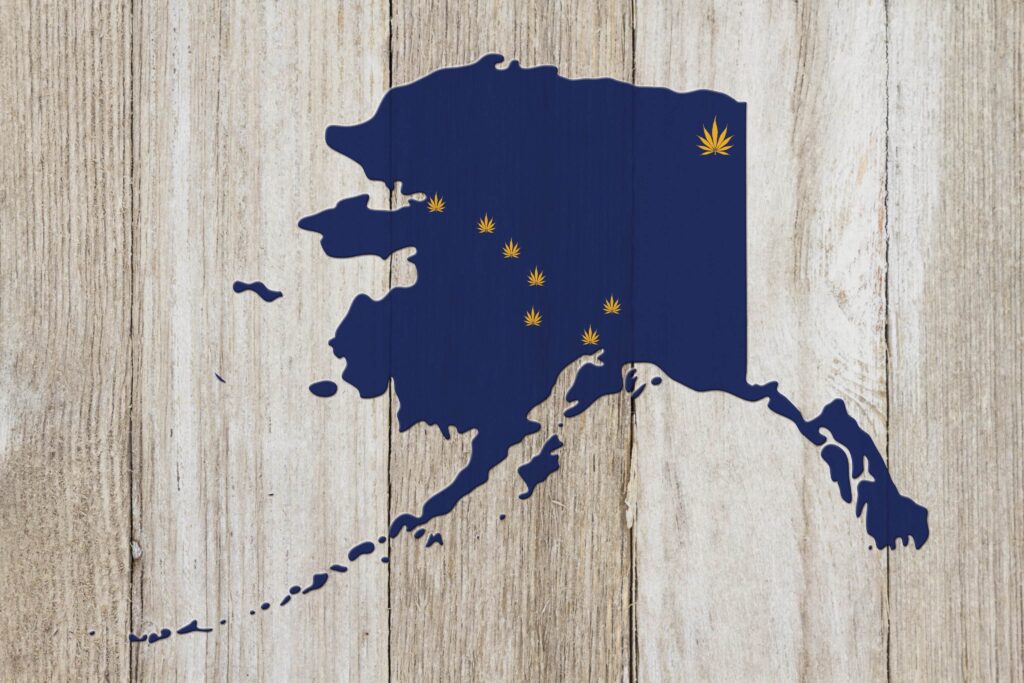
A group of Alaska hemp growers and manufacturers has filed a lawsuit against the state challenging its new hemp regulations, arguing that they are unconstitutional and contrary to federal law. The new rules, which were approved in October and went into effect last week, are designed to regulate intoxicating hemp products. The lawsuit brought by plaintiffs including the Alaska Industrial Hemp Association and four businesses, was filed Thursday in U.S. District Court in Anchorage, naming the Alaska Department of Natural Resources (DNR), its commissioner, the state director of agriculture and Lt. Gov. Nancy Dahlstrom as defendants in the case.
The 2018 Farm Bill legalized hemp nationwide, defining the crop as cannabis with a THC concentration no greater than 0.3% by dry weight. But under Alaska’s new regulations, the DNR is prohibited from approving “an industrial hemp product that contains delta-9-THC.”
Critics of the new rules believe the regulations go too far and will likely stifle the hemp industry. Christopher Hoke, an attorney representing the plaintiffs in the lawsuit, says that the regulations will make nearly all of the state’s hemp products, including beverages, gummies and other edibles, illegal.
“We’re just harming our own here,” Hoke told local media, adding that he has filed for a temporary restraining order to stop the new regulations from being enforced while the case makes its way through the legal system.
“We’ve asked for expedited consideration,” Hoke said.
In the complaint filed in the lawsuit, he argues that the new rules are a violation of the U.S. Constitution’s commerce clause.
“All hemp is federally lawful to possess, and hemp that fits the federal definition may not be interfered with as it flows through interstate commerce,” the complaint reads.
Industry Experts Weigh In On Legal Action
Michelle Bodian, partner at the cannabis law firm Vicente LLP, explained the legal basis of the lawsuit, noting that the legal action brings up some of the same issues argued in a similar case filed in Florida last week.
“This is the second hemp product-related lawsuit this week and highlights yet again the need for a consistent national framework. The plaintiffs here make similar arguments as the plaintiffs in the other lawsuits to date, mainly that the amended Alaska regulations interfere with interstate commerce and are violations of the 2018 Farm Bill and the Constitution’s dormant commerce clause, and that federal law preempts state law.”
Bodian added that it is “hard to say for certain the chances of success, but so far with these lawsuits, the wins outpace the losses.”
The lawsuit is supported by the U.S. Hemp Roundtable, a national trade group for the hemp industry. Jonathan Miller, general counsel for the group, says that the regulations go to far and put the growing hemp industry at risk.
“We strongly support the hemp growers’ lawsuit. Alaska’s new regulations, while introduced under the guise of restricting impairing products, would virtually eliminate the non-intoxicating hemp and CBD industries,” Miller writes in an email. “By banning products with any level of THC from the retail marketplace, Alaska would be prohibiting the vast majority of safe, healthy, non-intoxicating products that contain traces of THC but not at levels that would potentially impair consumers. This smacks of an unscrupulous effort to reduce competition while hiding behind false claims of consumer protection.”
Alaska’s new regulations on hemp products are supported by representatives of the state’s regulated cannabis industry, who say the rules will subject intoxicating hemp products, which are currently unregulated, to the same regulations as THC products.
“For one, it keeps intoxicating products out of the hands of minors, which is a big thing,” said Ryan Tunseth, president of the Alaska Marijuana Industry Association, “and two, it makes sure that if you are selling intoxicating products, that you’re following all the same regulations that Alaskans expect, and (the state) is able to capture tax revenue from that.”
The lawsuit has been assigned to Judge Sharon Gleason, who has not yet established a schedule for written arguments on the requested restraining order. Hoke said that he believes his clients will prevail once the case is heard.
“I think this should fall our way,” he said.
Read full article on High Times

